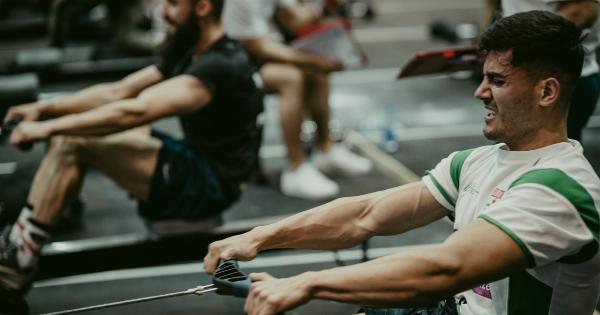When it comes to maintaining a healthy lifestyle, regular exercise is key. Exercise has numerous benefits for both physical and mental well-being, including weight management, improved cardiovascular health, increased muscle strength, and better mood.
However, many people have noticed that after a workout session, they experience an increased appetite. This phenomenon has led to the question – is exercise making you hungrier?.
The science behind hunger and exercise
Understanding the relationship between exercise and appetite requires insight into the physiological changes that occur during and after physical activity.
Studies have shown that exercise influences various hormones and neurotransmitters involved in regulating hunger and satiety.
One of the hormones responsible for hunger regulation is ghrelin. Ghrelin is often referred to as the ‘hunger hormone’ as it stimulates appetite. Research has found that levels of ghrelin decrease during and immediately after exercise.
This temporary suppression of ghrelin may explain why some individuals experience a decrease in hunger during a workout.
On the other hand, exercise has been shown to increase levels of peptide YY (PYY) and glucagon-like peptide 1 (GLP-1), both of which are involved in suppressing appetite.
These hormones are released from the intestines and signal to the brain that the body is full. Therefore, exercise may initially lead to a decrease in appetite.
However, it is important to note that these hormonal changes vary among individuals and can be influenced by factors such as intensity and duration of exercise, fitness level, and body composition.
Additionally, while exercise may initially suppress hunger, it can also lead to an increase in appetite post-workout.
The post-workout appetite surge
After completing a challenging workout, many individuals experience an increase in appetite. This surge in hunger can be attributed to various factors.
1. Energy expenditure
Exercise increases energy expenditure, burning calories in the process. The body’s natural response to this increased energy expenditure is to seek replenishment through food.
This is especially true for high-intensity workouts or long-duration endurance exercises.
2. Muscle repair and growth
Engaging in resistance training or other forms of exercise that challenge the muscles can result in muscle damage. The body needs fuel to repair and rebuild these muscles, and this can trigger an increased appetite.
Protein, in particular, is essential for muscle repair and growth, so it is common to crave protein-rich foods after a strenuous workout.
3. Dehydration
Exercise leads to sweat loss and subsequent dehydration. Thirst and hunger signals are often intertwined, and dehydration can sometimes be misinterpreted as hunger.
Therefore, if you are not adequately hydrated during or after exercise, you may feel hungrier than usual.
4. Psychological factors
Psychological factors also play a role in post-workout appetite. Many people develop a reward system or indulge in food as a form of celebration after achieving fitness goals.
This psychological connection between exercise and food can lead to increased hunger after workouts.
Managing post-workout hunger
If you find that exercise leaves you feeling hungrier than usual, there are strategies you can implement to manage your post-workout appetite to align with your health and fitness goals.
1. Nourish properly before workouts
Eating a balanced meal or snack containing carbohydrates, protein, and healthy fats before your workout can provide the necessary fuel to sustain energy levels during exercise.
Consuming a combination of macronutrients can also help regulate your appetite post-workout.
2. Stay hydrated
Ensure that you are properly hydrated before, during, and after exercise. Sometimes, feelings of hunger are simply misinterpretations of thirst. By staying hydrated, you can help differentiate between true hunger and dehydration-induced hunger signals.
3. Opt for nutritious post-workout meals
Instead of reaching for high-calorie, low-nutrient foods after exercise, choose nutritious meals or snacks that can aid in muscle repair and recovery.
Include a mix of lean proteins, whole grains, fruits, and vegetables to promote satiety and replenish energy stores.
4. Listen to your body
Every individual is unique, and your appetite may fluctuate differently in response to exercise. It is essential to listen to your body and honor its cues. If you are genuinely hungry after a workout, nourish yourself with healthy choices.
However, be mindful of emotional or non-hunger-related eating triggers.
By adopting these strategies, you can manage post-workout hunger while still reaping the benefits of exercise for your overall well-being.






























